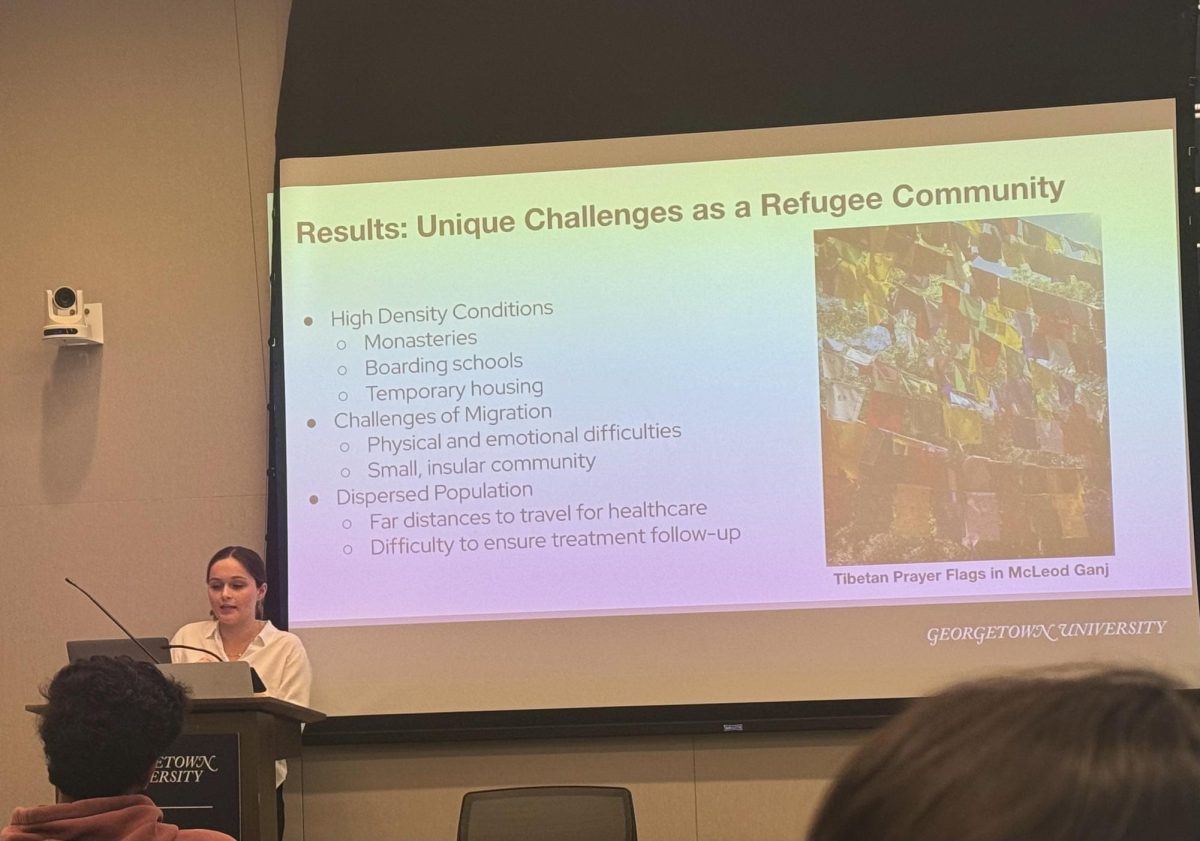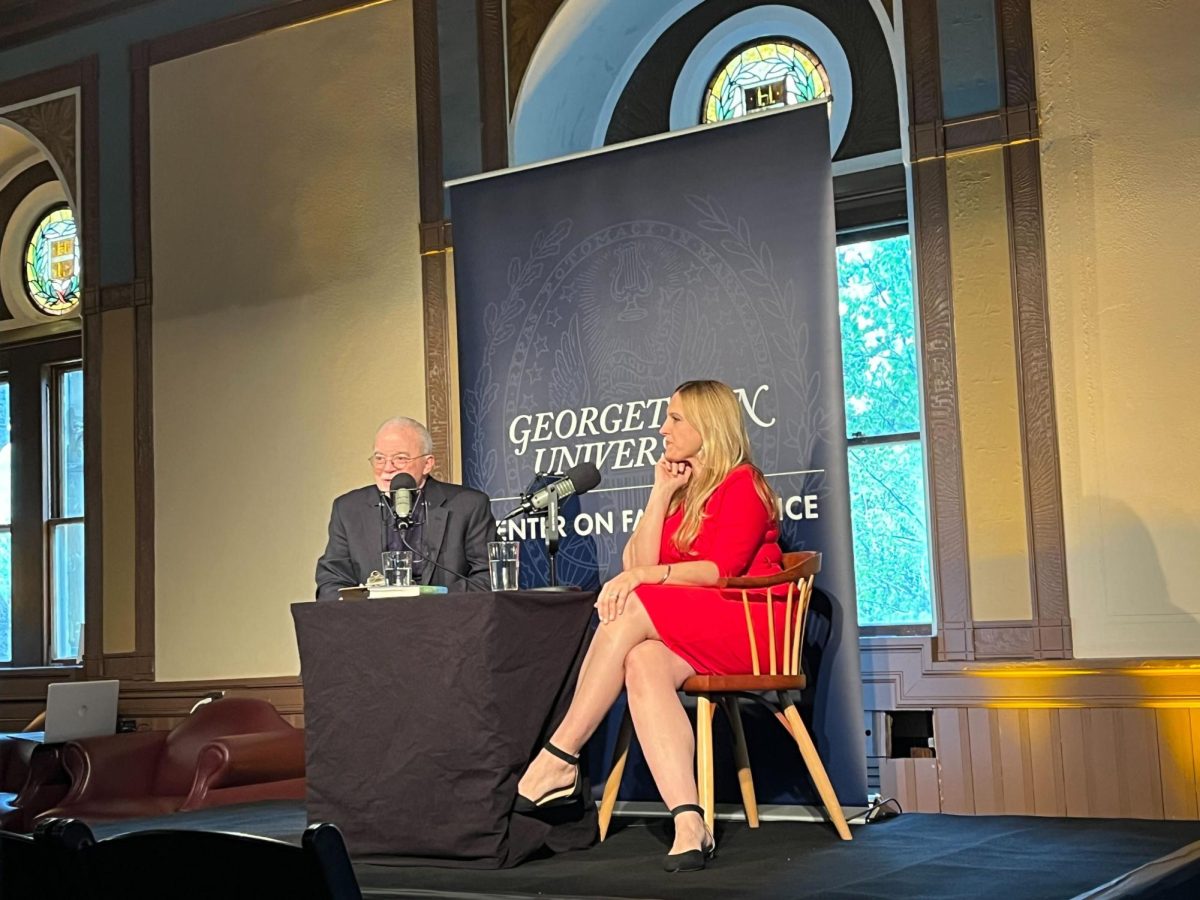
For many upperclassmen, serving as a teaching assistant provides a fresh perspective on the classroom.
Unlike graduate students, who are often required to be a TA as part of their research or fellowship, undergraduate students choose the position themselves.
“I love it actually; it’s like one of my favorite things. I like it more than the classes I am taking, and it’s actually really fun,” Probability and Statistics TA Patrick Owens (COL ’14) said.
For Crystal Huang (MSB ’16), a teaching assistant from China, being a TA for a Chinese class gives her a unique perspective on how outsiders see her culture.
“I come from China, and I think it’s really fascinating to see my fellow American students learning Chinese,” Huang said. “I think we have a great Eastern language department, and it’s been a great opportunity to get to know faculty members.”
Matthew Howard (COL ’14), found his time as a TA for both an introductory biology course and an ecology course a useful review of his own knowledge.
“It’s kind of a combination of looking at it from a teaching perspective and then also going through the material again; for me, I found it pretty helpful for studying for the MCAT,” Howard said.
The desire to review the basics spans disciplines. Conor McNulty (COL ’14), an economics major, wanted to be a TA to review the foundations of his major.
“I think it is a great opportunity to teach, but I think it shows really well how you understand something if you can teach it to someone else,” McNulty said.
Oded Meyer, professor of mathematics and statistics, uses exclusively undergraduate students as teaching assistants. When he was first hired, the department gave him graduate TAs, but Meyer chose to switch to undergraduate TAs for his courses.
“I find the undergraduate students to be very loyal, very enthusiastic, and I’ve always had good experiences with undergraduate TAs,” Meyer said.
Meyer also believes that it adds to the undergraduate experience by opening an opportunity to see class from a different perspective.
“It really enriches the undergraduate student’s experience in college to be on the other side and to be part of a teaching team of a course, even if it is only a TA and grading, you are on the other side,” Meyer said.
Owens chose to be a TA because he aspires to be a teacher.
“I want to teach high school math, so I figured this would be a good experience and sort of give the inside scoop for what it is like to be a teacher,” he said.
As undergraduates, many believe that they have a better understanding of the students and what they may be struggling with compared to the graduate students who are TAs in departments such as government, philosophy and the physical sciences.
“A lot of the time, since we have taken the classes that we are TAing for, we know the ropes and the tricks,” Howard said.
Many undergraduate teaching assistants see this as a strength of undergraduate versus graduate TAs.
“I think being a student and not so far removed from having taken the class yourself actually makes undergraduates better TAs for some of these basic courses because sometimes graduate students haven’t taken the course in a while and sometimes it may be a little more challenging for them to understand why someone doesn’t get such a basic concept,” McNulty said.
However, the connection between upperclassmen teaching assistants and their students can make it difficult when grading.
“Needing to grade things is difficult because if you have a personal connection to your students, which I did, and it’s really difficult to dock major amounts of points if you know that they did something wrong, but you still really want to support them through the class,” Lena Bichell (COL ’15), a biology teaching assistant, said.
Requirements for becoming a TA differ widely across departments. While several departments, including Chinese, economics and math, have application processes, TAs in the biology department are chosen directly by professors.
The responsibility of teaching assistants also differs with department. In biology, the TAs assist labs under professor supervision, while economics TAs run recitation sessions independent of professors.
With responsibilities varying greatly, teaching assistants are also compensated in different ways for their services. TAs in departments such as Chinese and economics receive payment, while biology TAs may be eligible to receive credit for an introductory biology course or payment, depending on the class for which they are a TA.
For some, like “Introductory Biology” TA Elizabeth Tubridy (COL ’14), the position comes with less tangible benefits.
“I kind of wanted to do it just as a chance to get to know my professors better and also to give back to the program,” Tubridy said.




















